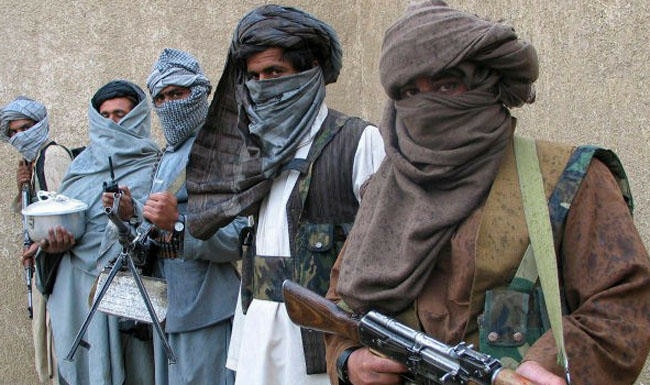Pakistan likely planning a new military operation against terrorists

The National Security Committee (NSC) of Pakistan has issued a statement condemning the support and safe haven provided to Pakistani terrorist groups by the Taliban in Afghanistan. The statement, which was issued at the end of a two-day NSC meeting, also reaffirms the Pakistani government’s commitment to take decisive action against all terrorist groups operating within the country.
Two statements issued by NSC and the army after a corps commanders’ conference suggest that a new military operation is in the planning stages.
In addition, the NSC statement declares that “Pakistan’s security is uncompromisable and the full writ of the state will be maintained on every inch of Pakistan’s territory.” The NSC, which is led by the Prime Minister and includes key ministers, military leaders, and intelligence officials, also approved a plan to improve economic stability in the country.
The National Security Committee (NSC) of Pakistan held a meeting to address the recent increase in terrorist attacks and the worsening economic crisis. Foreign Minister Bilawal Bhutto-Zardari participated in the first day of proceedings but was absent on the second day.
Most of the attacks have been carried out by the Tehreek-i-Taliban Pakistan (TTP), a group that is allied with the Afghan Taliban and operates with the support and safe haven in Afghanistan.
The NSC, which is the highest forum for civil-military decision-making on national security issues, also discussed the rising number of border incidents involving Taliban forces.
The committee agreed on several measures to address the deteriorating security situation, which has also drawn the attention of other countries and prompted them to issue advisories for their citizens residing in Pakistan. The most important of these measures was a clear message to Afghanistan to end all support for the TTP.
The NSC statement declared that “no country will be allowed to provide sanctuaries and facilitation to terrorists and Pakistan reserves all rights in that respect to safeguard her people.” This warning was issued amid escalating tensions and a war of words between the two countries over the TTP and border disputes.
Later on Monday, Defense Minister Khawaja Asif told Geo News that Afghanistan was still being used as a base for attacks against Pakistan, despite an agreement between the two countries.
In an interview on Shahzeb Khanzada’s show, Asif stated that the Afghan government had promised that its territory would not be used against Pakistan and that the Pakistani government was in constant communication with Afghanistan regarding border violations.
Earlier, Interior Minister Rana Sanaullah had hinted that Pakistan was considering strikes against TTP hideouts in Afghanistan if the Taliban failed to take action against the terrorist group and hand over TTP leaders and fighters living there.
The Afghan Taliban, who mediated unsuccessful peace talks between the Pakistani government and TTP, now deny that the TTP is present in Afghanistan. In response to Sanaullah’s comments, the Afghan Taliban’s Defense Ministry issued a statement calling them “provocative and baseless” and stating that Afghanistan was “ready to defend its territorial integrity and independence.”
A Taliban official based in Doha, Ahmad Yasir, warned Pakistan against military action on Twitter, stating that “Syria and Pakistan are not Turkey to target the Kurds in Syria. It’s Afghanistan, which is the graveyard of empires. Never think of a military attack on us, or else you may end up with the embarrassing repeat of the agreement with India.”
The National Security Committee (NSC) of Pakistan has decided to strengthen the counter-terrorism capabilities of law enforcement agencies, particularly provincial counter-terrorism departments, and to restore the provincial apex committees.
These committees, which were previously active during the tenure of Prime Minister Nawaz Sharif and military leader Raheel Sharif, may involve increased military involvement in provincial affairs, particularly those related to security.
The NSC emphasized the need for zero tolerance for terrorism in the country and reiterated its determination to take strong action against any entity that resorts to violence.
The NSC’s statement and a separate one issued by the army after a corps commanders’ conference suggest that a new military operation may be in the planning stages.
The Prime Minister’s Office also tweeted about the NSC’s commitment to “zero tolerance” for terrorism and its determination to root out all forms of terrorism, and stated that no country would be allowed to use its territory as a safe haven for terrorists.
The National Security Committee (NSC) of Pakistan has agreed on a number of measures to address the country’s economic downturn, including rationalizing imports and preventing illegal currency outflows through the hawala business.
The NSC also approved plans to increase agricultural production and improve the manufacturing sector in order to ensure food security, reduce imports, and create jobs.
The NSC emphasized the importance of “people-centric economic policies with trickle-down effects to common people” and stated that all stakeholders will be involved in developing a national consensus and roadmap for effective, fast-track economic recovery.
Finance Minister Ishaq Dar discussed the government’s strategy for restoring economic stability and mentioned the possibility of “exploring other financial avenues based on mutual interests as well as relief measures for common people.” Some have interpreted this as a sign that talks with the International Monetary Fund (IMF) have reached an impasse.



